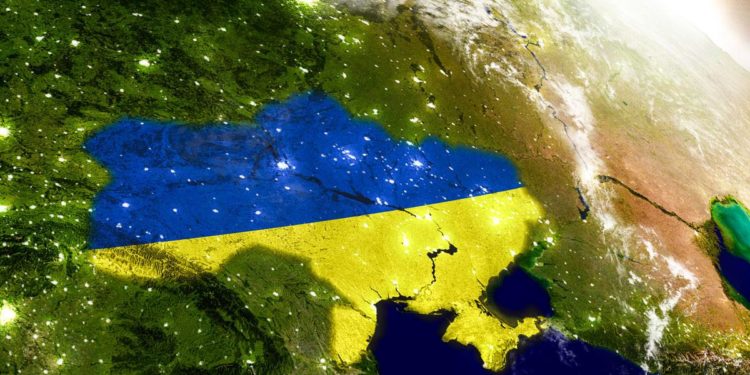The conflict in Ukraine looks like it might be about to unfreeze.
A large buildup of Russian troops near Ukraine’s border, joint military exercises alongside embattled allies, and the deployment of Russian nuclear-capable bombers in the area have raised alarm among North American Treaty Organization (NATO) members. Further, heightening tensions, Moscow has reacted strongly to the arms and equipment that have been supplied to Kiev by the Western alliance. In addition, the Kremlin claims the government in Kiev is planning an offensive against the Donetsk and Luhansk People’s Republics, the two eastern breakaway regions which Moscow recognizes as independent and protects. Further adding to the sense of impending catastrophe, just days ago Ukraine’s president, Volodymyr Zelensky, gave a public address in which he claimed a Russian-backed coup against his government had been uncovered and thwarted.
Appearances can be deceiving, though.
As in April, the buildup of troops and conducting of military exercises may be an effort by Moscow to prompt a summit with President Joe Biden. It could also be meant to signal confidence to embattled allies in Belarus, Bosnia and Herzegovina, and elsewhere. Or it could be an attempt to rally increasingly dissatisfied Russians to the flag, as with the domestically popular 2014 annexation of Crimea.
However, an outright attack on the Ukrainian army by Russian regular forces entails many risks, while the rewards would be uncertain at best. Vladimir Putin is suffering arguably the lowest approval ratings of his twenty years in power, while polls also reveal that a strong majority of Russians disapprove of a hypothetical Russian annexation of Ukraine. Already angered by the unknown number of Russian soldiers killed in the seven years of intermittent fighting, buried in unmarked graves and without notification of their families, would casualties of several thousand in an invasion of Ukraine draw the already frustrated Russian people out in anger? This potential danger to the regime would be exacerbated by whatever new sanctions the United States and the European Union would throw down. Russia’s economy is struggling and has been stagnating for several years. Corruption is a fact of daily life, from the policeman to the doctor, judge, civil servant, teacher, businessman, and politician.
In the unlikely event Putin ordered a successful invasion of Ukraine, it would likely be arsenic to his already unsteady regime, plagued by elite infighting and an uncertain line of succession. Therefore, apart from any real or perceived provocations by either side, the conflict in Ukraine is likely to remain frozen. Neither outcome, however, would seriously harm core US interests. The Baltic states would be no more or less defensible as a result, and the failure of the United States and its allies to restore Ukraine’s territorial sovereignty—as jointly assured by Washington and Moscow via the Budapest Memorandum—seems to have done nothing to undermine the perception of wider US security guarantees.
For its part, Moscow is likely to be content with the situation. Because it has unresolved territorial disputes, Ukraine is prevented from ever joining NATO, much as Moldovia and Georgia are hampered by their frozen conflicts in Transnistria and Abkhazia, respectively. This situation maintains Russia’s strategic depth while giving it added political, military, and economic influence over what it considers a key territory. Putin’s strategy of mitigating further unwanted NATO expansion by creating frozen conflicts that prevent those countries from joining the security organization has proven effective and its economic and geopolitical costs bearable. It is unsurprising, therefore, to find Moscow lurking behind what is brewing in the Balkans. Bosnia and Herzegovina’s desire to join NATO has long been stymied by the leader of the Bosnian Serb coalition, Milorad Dodik. His actions, backed by powerful “friends” of the Serb people, seek to place a more permanent hurdle in the path.
That hypothetical the situation too is livable as far as core US interests are concerned.
In the case of Ukraine, the only agreed paths to peace, the Minsk Protocols, have proven dead letters, for while Moscow insists on constitutional changes giving the Donetsk and Luhansk People’s Republics a controlling voice over critical matters like foreign policy before Kiev retakes control over the eastern portions of the country, Kiev says it will make no constitutional changes until it has regained its sovereignty over those seceded regions.
Whatever their statements to the contrary, Russia has already abrogated its part in the 1994 Budapest Memorandum on Security Assurances for Ukraine. For its part, the US cannot enforce it at acceptable costs, and so the situation is at present best left the way it is.
However, an unhealthy dynamic has developed between Russia and the West over the latter’s activities in Russia’s “near abroad.” Putin’s attempts to defend Russia’s claim to a sphere of influence in its former empire are viewed as aggressive by the countries of NATO and the European Union. NATO then attempts to reinforce the Baltic states or Poland for fear of further Russian aggression, which is perceived as aggressive by Moscow, which again acts, is perceived to be aggressive, et cetera. The cycle is self-perpetuating and potentially dangerous. Wars have happened despite neither side actually wanting them.
For their part, the US and NATO should do as little to contribute to the problem as possible. This especially includes continuing to arm Ukraine and insisting that it has a future in NATO.
















